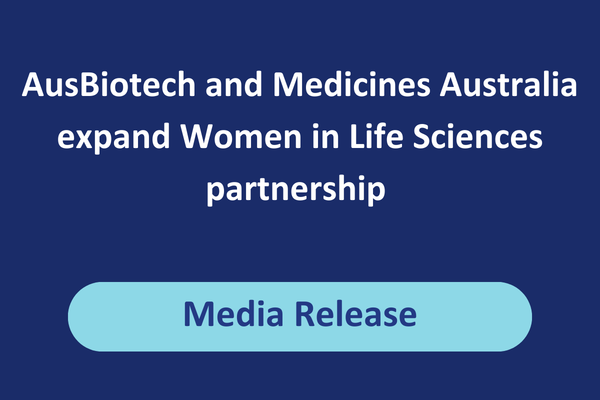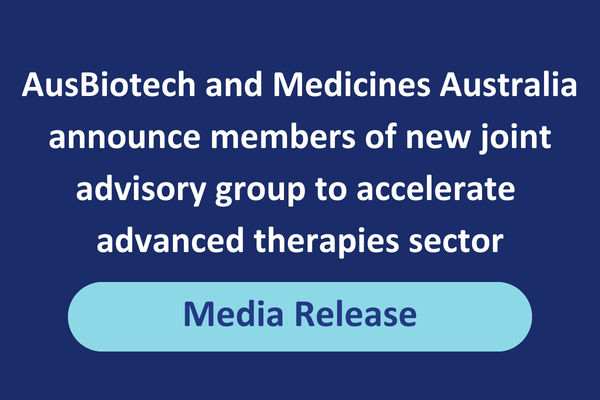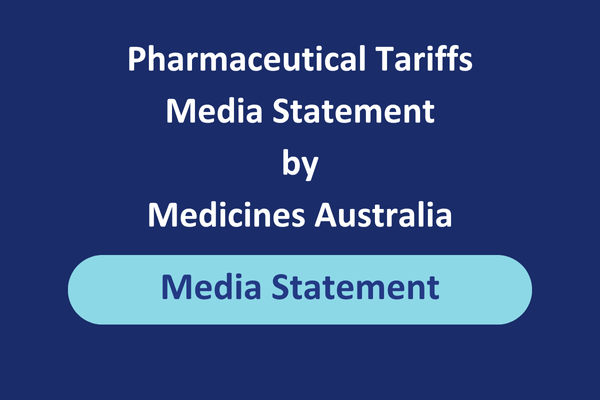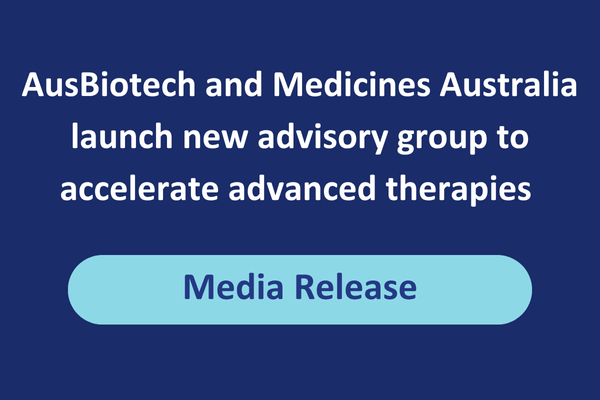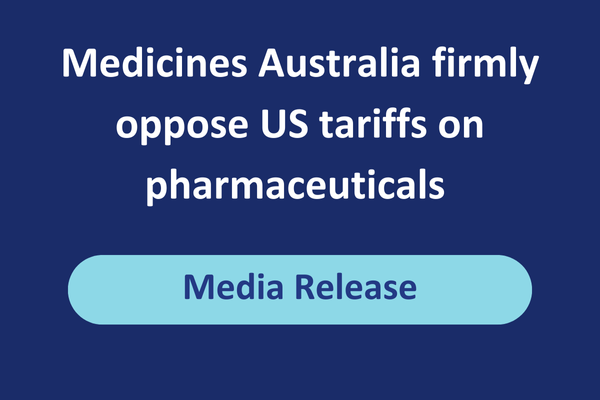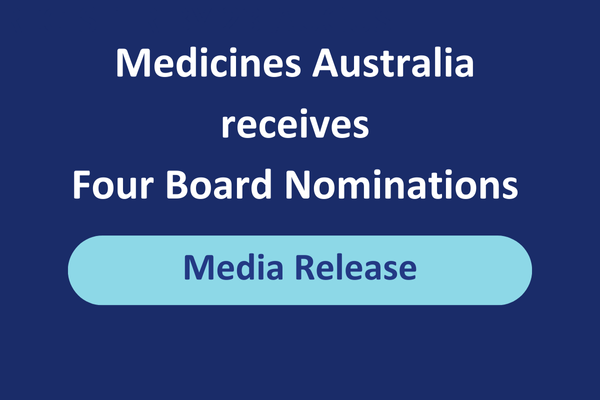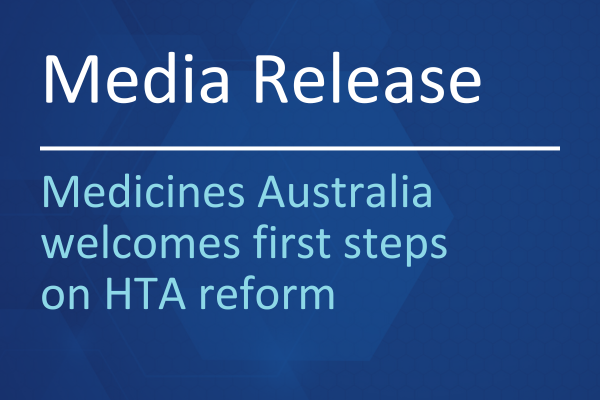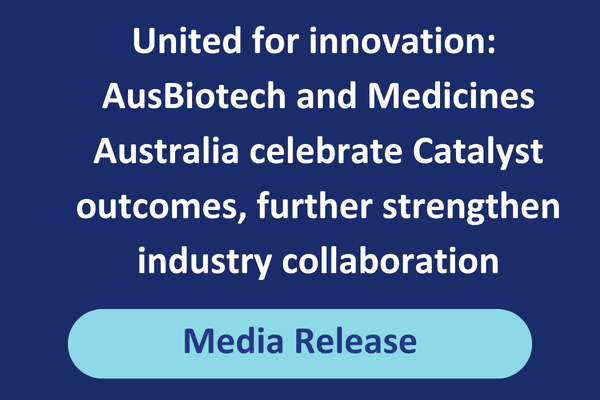AusBiotech and Medicines Australia expand Women in Life Sciences partnership
17 February 2026: AusBiotech and Medicines Australia will again partner to host the Women in Life Sciences Luncheon in 2026 and, for the first time, have expanded their partnership to deliver the Leadership Summit.
Held in New South Wales on 6 March, the two events bring together leaders from across biotechnology, pharmaceuticals, medical technologies, digital health, research, and government to mark International Women’s Day 2026.
Aligned with this year’s global theme #GivetoGain, the program reflects the principle that generosity — through mentorship, advocacy, and the sharing of knowledge and opportunity — is essential to helping women advance. And when women progress, we all gain a stronger, more connected and more equitable sector for everyone.
The events are also informed by UN Women’s call to ‘Balance the Scale’ campaign, highlighting the need to dismantle systemic barriers and discriminatory practices that continue to limit progress for women and girls.
Women in Life Sciences Luncheon
The Women in Life Sciences Luncheon is set to bring together more than 600 leaders, changemakers, and allies to acknowledge the lived experiences of women across the sector.
The Luncheon provides a forum for open discussion, connection and shared learning, recognising that challenges often experienced individually are, in fact, widely shared — and best addressed collectively.
Luncheon keynote speaker announced: Dr Annalisa Jenkins OBE, MBBS, FRCP will deliver the keynote address as this year’s. Dr Jenkins is an internationally recognised life sciences thought leader who operates at the intersection of technology, innovation, and healthcare delivery. She is a board member and investor for multiple companies and funds, Honorary Professor at St. Mary’s University in London and has cultivated roles across Genomics England, The King’s Fund, the British Heart Foundation, Tessa Jowell Foundation and YouBelong. As a Non-Executive Director for Proto Axiom, a Sydney-based biotech investment incubator, Dr Jenkins is also shaping the Australian biotech landscape.
Women in Life Sciences Leadership Summit
For the first time, AusBiotech and Medicines Australia are partnering to deliver the Women in Life Sciences
Leadership Summit, focused on equipping mid-level and emerging leaders with the skills, confidence, and
connections needed to progress into senior leadership.
The 2026 Summit will explore a number of contemporary themes including:
- Leading with calm and resilience through uncertainty
- Making clear decisions when information is incomplete
- Balancing agility with authenticity in modern leadership
- Building trust, ethics and human-centred leadership in an AI-enabled world
- The leadership skills that endure, even as everything else changes
Aligned with #GivetoGain, the Summit emphasises peer learning, shared insight, and the power of connection in accelerating leadership growth across the life sciences ecosystem.
Speakers include:
- Nirelle Tolstoshev, General Manager, Astellas Pharma Australia
- Meredith Crowe, Senior Vice President, Global People & Culture, Telix Pharmaceuticals Limited
- Robyn Langham AM, Chief Medical Officer, Therapeutic Goods Administration
- Sue MacLeman, Chair, Medicines Australia
- Geraldine Murphy, Site General Manager, AstraZeneca
Comments from AusBiotech CEO, Rebekah Cassidy:
“The Women in Life Sciences Luncheon and Leadership Summit are part of AusBiotech’s ongoing commitment to actively shaping the future of leadership in our sector.”
“The life sciences sector is built on collaboration, and the #GivetoGain theme reflects a simple but powerful truth: when we give time, visibility, mentorship, and opportunity to women, we strengthen our organisations and our entire ecosystem.
“There is enormous shared opportunity in women, from all parts of our sector, working together to advance health innovation. I’m delighted that AusBiotech is again partnering with Medicines Australia to deliver this year’s luncheon and now partnering on the Leadership Summit. These events create space for honest conversation, collective learning, and connection across our sector.
“By bringing leaders together at different stages of their careers and from different parts of our sector, we can turn individual experience into collective momentum and help build a more inclusive, future-ready life sciences sector.”
Comments from Liz de Somer, Chief Executive Officer, Medicines Australia:
“Our continued collaboration with AusBiotech — including our longstanding support of the Women in Life Sciences Luncheon — reflects a shared commitment to strengthening leadership pathways for women across the life sciences sector. This year, we are particularly proud to expand our partnership to include the Leadership Summit — an important step in reinforcing our shared commitment to practical leadership development and tangible progress for women across the sector.
“Australia’s life sciences community benefits enormously from the expertise, innovation and leadership women bring to research, industry and healthcare. However, meaningful progress requires sustained effort — through sponsorship, advocacy and collective accountability — to remove structural barriers that persist.
“By investing in women’s advancement, and by continuing to show up through initiatives such as the Luncheon and Leadership Summit, we strengthen our sector and deliver better outcomes for patients and the broader community.”
For more information, and to register, click here: https://www.ausbiotech.org/events/event/women-inlife-sciences-2026
Media inquiries:
AusBiotech Communications Advisor, Rose Mary Petrass / +61 457 867 78 / rpetrass@ausbiotech.org
Medicines Australia/Cube, Anne-Marie Sparrow / +61 417 421 560 / media@medicinesaustralia.com.au
About AusBiotech
AusBiotech is Australia’s leading national and global advocate for life sciences, working to help its more than 3000 members thrive by shaping policy, creating connections, and fostering knowledge sharing. With an unrivalled national convening power, AusBiotech supports its members’ growth by building an Australian life sciences ecosystem that leads in development and commercialisation, creating high-quality, innovative life sciences companies.
About Medicines Australia:
Medicines Australia leads the research-based pharmaceutical industry of Australia. Our members discover, develop and manufacture the medicines that are the foundation of a healthy and prosperous society, including prescription pharmaceutical products, biotherapeutic products and vaccines. Our members invest in Australian medical research and take local discoveries and developments to the world.

